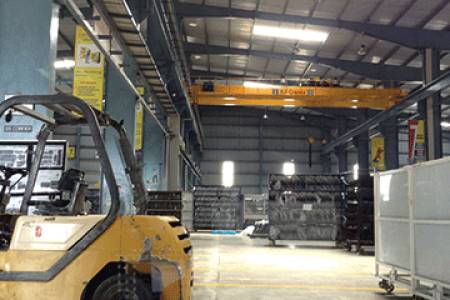Description
Breaking In a New 1300 Tonne Ferromatic: A Comprehensive Guide
This comprehensive guide details the crucial process of breaking in your new 1300-tonne Ferromatic press. Proper break-in ensures optimal performance, longevity, and minimizes the risk of premature wear and tear. This meticulously crafted document provides step-by-step instructions and crucial considerations for a successful break-in period.
I. Pre-Break-in Preparations:
- Thorough Inspection: Before commencing the break-in process, conduct a meticulous inspection of the entire machine. Verify the correct installation, lubrication levels, and the absence of any loose components. Refer to your Ferromatic operating manual for detailed inspection procedures.
- Hydraulic System Check: Ensure the hydraulic system is properly primed and filled with the recommended fluid. Inspect all hoses and connections for leaks. Pressure testing might be required – consult your Ferromatic service manual.
- Electrical System Verification: Check all electrical connections, ensuring they are secure and properly grounded. Test all safety features, including emergency stops and light curtains.
- Operator Training: Ensure all operators are fully trained and understand the operating procedures, safety regulations, and the break-in process.
II. The Break-in Process (Phased Approach):
The break-in process should be conducted gradually over a specified period (typically outlined in your machine's documentation, but generally several weeks). We recommend a phased approach:
Phase 1: Low-Load Operation (Weeks 1-2):
- Initial Runs: Begin with a series of short cycles at approximately 10-20% of the machine's maximum tonnage capacity (130-260 tonnes).
- Varying Strokes: Utilize varying stroke lengths and speeds to ensure even distribution of pressure across all moving parts.
- Monitoring: Closely monitor the hydraulic pressure, temperature, and overall machine behaviour. Note any unusual noises, vibrations, or leaks.
- Regular Lubrication: Adhere to the manufacturer's recommended lubrication schedule.
Phase 2: Gradual Load Increase (Weeks 3-4):
- Incrementally Increase Load: Gradually increase the load in increments of 10-20% per week, ensuring that the machine operates smoothly at each level.
- Extended Run Time: Gradually increase the duration of the operating cycles.
- Material Selection: Use materials similar to those intended for regular production, but with a focus on consistent and predictable material properties.
- Continuous Monitoring: Maintain strict monitoring of all critical parameters and meticulously document any observations.
Phase 3: Near Full Load Operation (Weeks 5-6):
- High-Load Testing: Run the machine at approximately 80-90% of its maximum capacity for extended periods.
- Performance Evaluation: Assess the machine's performance, accuracy, and efficiency.
- Fine-tuning Adjustments: Make any necessary adjustments based on observations from previous phases.
Phase 4: Full Load Operation (Week 7+):
- Full Capacity Operation: Commence operation at full capacity (1300 tonnes), ensuring all safety procedures are adhered to.
- Continuous Monitoring & Maintenance: Continue regular monitoring and maintenance to ensure optimal performance and longevity.
III. Critical Considerations:
- Lubrication: Consistent and proper lubrication is critical throughout the break-in period and beyond. Use only the manufacturer's recommended lubricants.
- Overload Protection: Avoid overloading the machine at any stage of the break-in process.
- Environmental Conditions: Maintain appropriate environmental conditions for the machine, as specified in the operator's manual.
- Documentation: Maintain detailed records of all operational parameters, observations, and maintenance activities throughout the break-in process.
IV. Contacting Ferromatic Support:
Should you encounter any unexpected issues or require further assistance during the break-in process, contact your authorized Ferromatic service representative immediately.
This guide provides general recommendations. Always consult your specific Ferromatic machine's documentation for detailed instructions and safety procedures. Proper break-in is crucial for the successful and long-lasting operation of your 1300-tonne Ferromatic press.
